On May 13 and 14, the University of British Columbia (UBC) hosted the inaugural Inter-Institutional Forum of the Scarborough National Charter on Anti-Black Racism and Black Inclusion in Canadian Higher Education. The forum included a public symposium, co-hosted by UBC and Simon Fraser University (SFU), on May 14.
Community Making and Black Flourishing Through the Scarborough Charter contributes to the ongoing work and commitments by both universities to combat anti-Black racism and promote Black flourishing at our institutions and in the wider community. The symposium also serves to illustrate to a national audience how the goals of the Scarborough Charter are being interpreted locally.
The Inter-Institutional Forum, which includes the symposium, follows the November 2021 signing of the Scarborough Charter, a historic pledge to fight anti-Black racism and to promote Black inclusion in higher education. More than 50 universities and colleges across Canada, including UBC and SFU, have signed the Scarborough Charter, signalling commitments to move from rhetoric to meaningful concrete action to address anti-Black racism and to promote Black inclusion. The principles, actions, and commitments outlined in the Charter reflect the signatories’ collective recognition of the realities of Black lives in academia, encapsulate our shared aspirations to address anti-Black racism and promote Black inclusion, and provide a concrete framework for delivering on our promise.
Community Making and Black Flourishing Through the Scarborough Charter brings together four panels of administrators, faculty, advisors, students, and community activists for discussion. The event is an opportunity to engage with experts, thought leaders and activists on pathways for action on addressing anti-Black racism and promoting Black representation and flourishing in academia.
May 14, 2022
2:00–5:45 pm PDT
In-person at UBC Robson Square, 800 Robson Street
or
Virtually via Livestream
Co-hosted by:
Program at a glance
Presenter and panelist details
WELCOMING REMARKS

Handel Kashope Wright, Senior Advisor to the President on Anti-racism and Inclusive Excellence and Director, Centre for Culture, Identity & Education, University of British Columbia.
Handel Kashope Wright is Senior Advisor to the President on Anti-Racism and Inclusive Excellence, Director of the Centre for Culture, Identity and Education, and Professor of Education, University of British Columbia. He is co-editor of the book series African and Diasporic Cultural Studies (University of Toronto Press) and Associate Editor of the journal Critical Arts. His recent publications include the co-edited book, The Nuances of Blackness in the Canadian Academy (University of Toronto Press, 2022). Dr. Wright’s community engagement includes membership on the Mayor of Vancouver’s Advisory Committee on Black History Month and the City of Vancouver’s External Advisory Committee on Equity and Diversity. Prof. Wright is also a member of the Scarborough Charter Inter-Institutional Steering Committee.
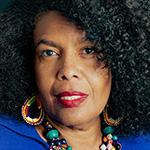
June Francis, Special Advisor to the President on Anti-racism and Director of the Institute for Diaspora Research and Engagement, Simon Fraser University.
June Francis is Cofounder of The Co-Laboratorio (CoLab Advantage Ltd.), Special Advisor to the President of Simon Fraser University on Anti-Racism, Director of the Institute for Diaspora Research and Engagement, Cofounder of the Black Caucus at SFU and an Associate Professor in the Beedie School of Business. She is also Board Chair of The Hogan’s Alley Society, an organization whose mission is to advance the economic and cultural well-being of people of African Descent through the delivery of housing, built spaces and programming. Through her consulting, research, the media and as a volunteer, she advocates for equity, diversity and inclusion for racialized groups as well as human rights. June Francis’ extensive experience spans the private and public sectors, nationally and internationally. As a business entrepreneur, through the CoLab, June Francis works with a wide range of clients to audit and address structural barriers to participation of Indigenous, Black and other racialized groups – in workplace culture, supply-chains, policy, programs, partnerships and service designs.
WELCOMING

Orene Askew, Former Squamish Nation Councillor
Orene Askew, also known as DJ O Show, is two-spirited Afro-Indigenous, a proud member and former councillor of the Sḵwx̱wú7mesh Úxwumixw (Squamish Nation), a successful DJ, and a motivational speaker who travels across the country to speak to Indigenous youth on topics such as her Afro-Canadian and Indigenous background, social justice and entrepreneurship.
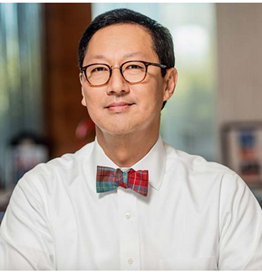
Santa J. Ono, President, UBC
Santa Ono is the 15th President & Vice-Chancellor of the University of British Columbia.
He also serves as Leader of the University Climate Change Coalition (UC3), a consortium of 22 of North America’s leading research universities focussed on climate action in 2020; as Chair of the U15 Group of Universities; on the Board of Directors of Universities Canada, and as Past Chair of Research Universities of British Columbia.
Prior to his appointment as President and Vice-Chancellor of UBC, Dr. Ono served as the 28th President of the University of Cincinnati and Senior Vice-Provost and Deputy to the Provost at Emory University.
A molecular immunologist educated at the University of Chicago and McGill, Dr. Ono has taught at Johns Hopkins, Harvard University and University College London.
He holds Honorary Doctorates from Chiba University and the Vancouver School of Theology and is a recipient of the Reginald Wilson Diversity Leadership Award from the American Council on Education, the Professional Achievement Award from University of Chicago, a Grand Challenges Hero Award from UCLA and the NAAAP 100 Award from the National Association of Asian American Professionals.

Joy Johnson, President, SFU
Joy Johnson is president and vice-chancellor of Simon Fraser University, and professor in its Faculty of Health Sciences.
As president, Joy is committed to building community partnerships; enhancing student learning experiences; supporting Indigenous reconciliation; and advancing equity, diversity and inclusion across the university.
Prior to her appointment as president, Joy served as SFU’s vice-president, research and international, and oversaw the evolution of cutting-edge research, innovation, and international engagement across eight faculties.
Under her leadership, SFU’s achieved the fastest growth of any Canadian university research income of any university in Canada, with a focus on mobilizing knowledge to enhance the social, economic and environmental wellbeing of its communities.
Prior to SFU, Joy had a distinguished career in academics and research. She is an elected Fellow of the Canadian Academy of Health Sciences, a Fellow of the Royal Society of Canada, and has co-authored more than 180 peer-reviewed articles.
Joy is currently serving on the Universities Canada Executive Committee.
Panel 1: Why a Charter for Black Representation and Inclusion?
Moderator
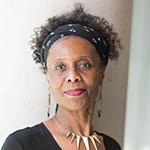
Annette Henry, Professor, Department of Language and Literacy Education & Institute for Race, Gender, Sexuality and Social Justice, University of British Columbia
Annette Henry is a professor in the Faculty of Education and at the Institute for Race, Gender, Sexuality and Social Justice at the University of British Columbia. She studies successful approaches to educating black youth, black teachers, feminist research and pedagogy in Canada, the US and the Caribbean. She has won awards for outstanding contributions to gender, equity and Black education.
Panel
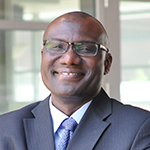
Wisdom Tettey, Vice-President, University of Toronto and Principal, University of Toronto Scarborough Campus
Wisdom Tettey is the Scarborough Charter Inter-Institutional Steering Committee Chair, Vice-President and Principal, University of Toronto Scarborough and professor of political science and development studies. His research interests include media, politics, and civic engagement in Africa; transnational citizenship and the African diaspora; political economy of globalization and information technology in Africa; African higher education and the knowledge society. Professor Tettey is an elected Fellow of the Ghana Academy of Arts and Sciences and currently serves on the advisory/editorial boards of various academic publications.

Malinda Smith, Vice Provost and Associate Vice President Research (Equity, Diversity and Inclusion) and Professor of Political Science, University of Calgary
Dr. Smith holds a PhD in political science from the University of Alberta, an MA, MDA , and a BA magna cum laude in political science and criminal justice, from Western Michigan University, and a Doctor of Laws Honoris Causa from Simon Fraser University (2021) . Dr. Smith serves on several national bodies, including SSHRC Council and Executive, and Statistics Canada’s Immigration and Ethnocultural Statistics Advisory Committee, and the Scarborough Charter Inter-Institutional Steering Committee.
Panel 2: Negotiating for Black Flourishing within Academic Institutions
Moderator
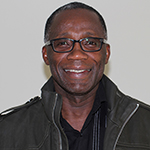
Henry Daniel, Distinguished Professor of Dance, Performance Studies and New Media Technologies, Simon Fraser University
Distinguished SFU Professor, Professor of Dance, Performance Studies and New Media Technologies, scholar, performer, choreographer, and Artistic Director of Full Performing Bodies, Daniel’s research concentrates on strengthening notions of Practice-as-Research (PaR) and Research/Creation in Canada. He has a professional background in dance, theatre, and new media with a career that started in his native Trinidad & Tobago and continued in the USA, Germany, the UK, and Canada.
Panel
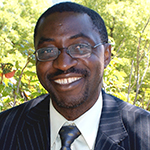
Moussa Magassa, Principal Strategist, Community Engagement, Justice, Equity, Diversity, Inclusion & Anti-Racism Education, University of Victoria; Upcoming Associate Vice-President, Equity, Diversity and Inclusion, Mount Royal University
Dr. Moussa Magassa is the UVic Principal Strategist, EDI, Anti-Racism Education and Community Engagement. His focus is to enhance understanding of the university’s human rights, equity, diversity, inclusion, and Anti-Racism education goals and commitment to community engagement and participation; facilitates collaboration between both campus partners and the wider Victoria communities to design an EDI and Anti-Racism project charter; creates spaces for inclusive conversations about the different ways UVic and partners can best support each other in advancing EDI Anti-Racism; and collaborates with all stakeholders to develop education initiatives grounded in applied research and gap analysis, need assessments, and the development of concrete tools founded in best practices.
Dr. Magassa is also an associate faculty in the UVic Social Justice Diploma program and in the intercultural studies and practice program. He also teaches in the M.A in Global Leadership program at Royal Roads University, and at the UBC Centre for intercultural communication.

June Francis, Special Advisor to the President on Anti-racism and Director of the Institute for Diaspora Research and Engagement, Simon Fraser University

Handel Kashope Wright, Senior Advisor to the President on Anti-racism and Inclusive Excellence and Director, Centre for Culture, Identity & Education, University of British Columbia
Drumming Performance/Reception
Performers
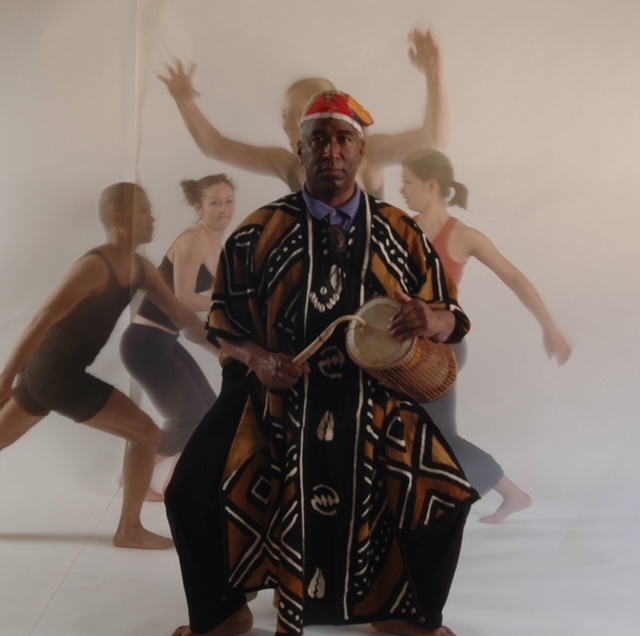
Albert St. Albert Smith, Lecturer Emeritus, School for the Contemporary Arts, Simon Fraser University
Albert St. Albert Smith is an African American musician whose specialty is instruments from different African nations and their Diaspora. He has studied and played many musical styles; jazz, rock and roll, folk, classical, Latin, and the fusion of these styles, as well as traditional and modern African music. A professional performer for over 40 years. As a faculty instructor at Simon Fraser University taught in the area of music for dance at the School for the Contemporary Arts and director of the SFU Ghana Field School in the Arts. Over the years he has performed with Nina Simon, Freddie Hubbard, Ernestine Anderson, and toured with World Drums Master Musicians of the World. He has performed with and recorded with Almeta Speaks, African Heritage and Uzume Taiko and Ache Brasil.

Edward Sembatya, PhD Student, School for the Contemporary Arts, Simon Fraser University
Edward Sembatya is a Ugandan dance practitioner, educator, and choreographer who is currently pursuing his practice-based Ph.D. in Dance at Simon Fraser University, School for Contemporary Arts, BC Canada. His artistic and research works broadly draw inspiration from everyday life and the rich knowledge and skills embedded in indigenous Ugandan dances, music, and tales. His areas of interest are Dance and activism, Dance as ICH, dance decolonization and contemporary, interculturalism, and dance identity.
Panel 3: Fostering a Supportive Environment for Black Students
Moderator

Adjua Akinwumi, Ph.D. Candidate in the School of Communication Simon Fraser University
Adjua Akinwumi is a Ph.D. Candidate in the School of Communication at Simon Fraser University. Leaning on critical and political-economy approaches, she explores how power and economic interests negotiate inclusion and exclusion. She holds an MA in Communication from Simon Fraser University and an MSC in Conflict and Development Studies from SOAS, University of London.
Panel
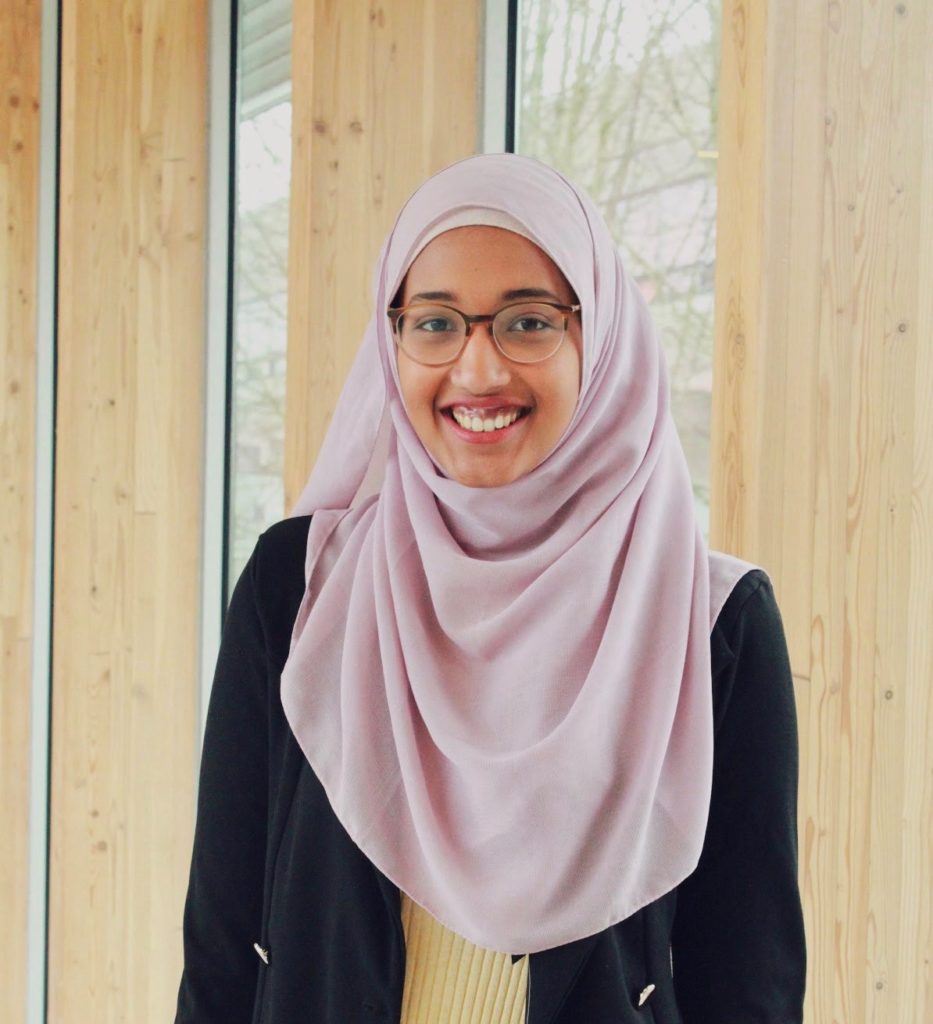
Balqees Jama, Student, Simon Fraser University
Balqees is a 3rd year student studying International Studies. She is deeply involved in developing anti-oppressive policies and practices at SFU. Balqees served on the board of the Simon Fraser Student Society, and recently completed her role as president of SFU Students of Caribbean & African Ancestry. Balqees is a co-founding member of the SFU Black Caucus, and is currently part of the steering committee to develop the upcoming SFU Black Student Centre which Black students advocated for.
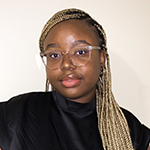
Binta Sesay, Student, University of British Columbia (Okanagan Campus)
Binta Sesay (she/her) is an international student at UBCO from The Gambia. She is in her final year of her B.A, majoring in International Relations. She works at the Equity and Inclusion Office as an inclusion project assistant, and has served as VP External of the African Caribbean Student Club in her second year. In her her third year, she served as the undergraduate student representative on the UBC Black Caucus executive, as well as the co-chair of the student committee on the UBC Anti-Racism task force. Binta loves advocating and centring the voices of those silenced. She is passionate about improving the experiences of Black people in different spaces. She aspires to become an international human rights lawyer.
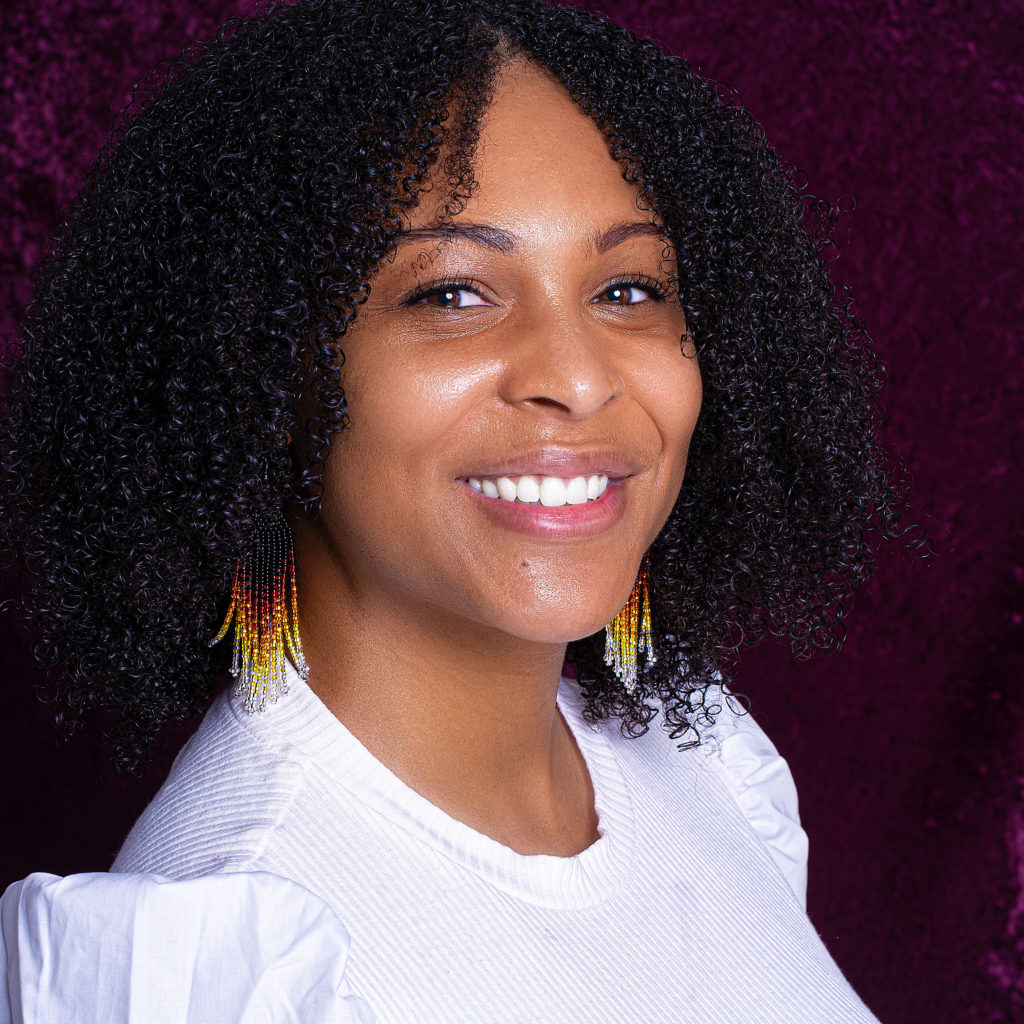
Tiara Cash, Student, Simon Fraser University
Tiara A Cash, MS MCMA is a graduate student at SFU where she works in the Helping and Happiness Lab on intersections of life transitions, prosocial behaviors, and well-being. In addition to being a graduate student and researching in the lab, she owns an organization focused on mindfulness, meta-awareness, and meaning (Crowned Vitta LLC) where she conducts presentations, workshops, and consultations through an emerging framework: Equitable Mindfulness.
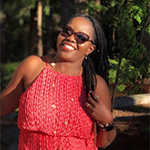
Joann Anokwuru, Ph.D. Candidate, University of British Columbia
Joann Anokwuru, special/inclusive educator, advocate, and author. She holds a B.Ed. and M.Ed. in Special education, University of Ibadan; M.Ed. in Curriculum and Pedagogy; Leadership, and Administration CULE, University of British Columbia. Adv. Diploma, Inclusive education, Queens University, Belfast. A Certified Educational Assessor, Real Training UK; Member, British Society of Psychologists BPS. A Ph.D. candidate in the Department of Curriculum and pedagogy, University of British Columbia, utilizing ecological narratives to inform the Nigerian educational system on the ideal of inclusive education. Joann is the founder of Newland Information Center Nigeria, a not-for-profit private library.
Panel 4: Promoting Mutuality Between Black Communities and the Academy
Moderator
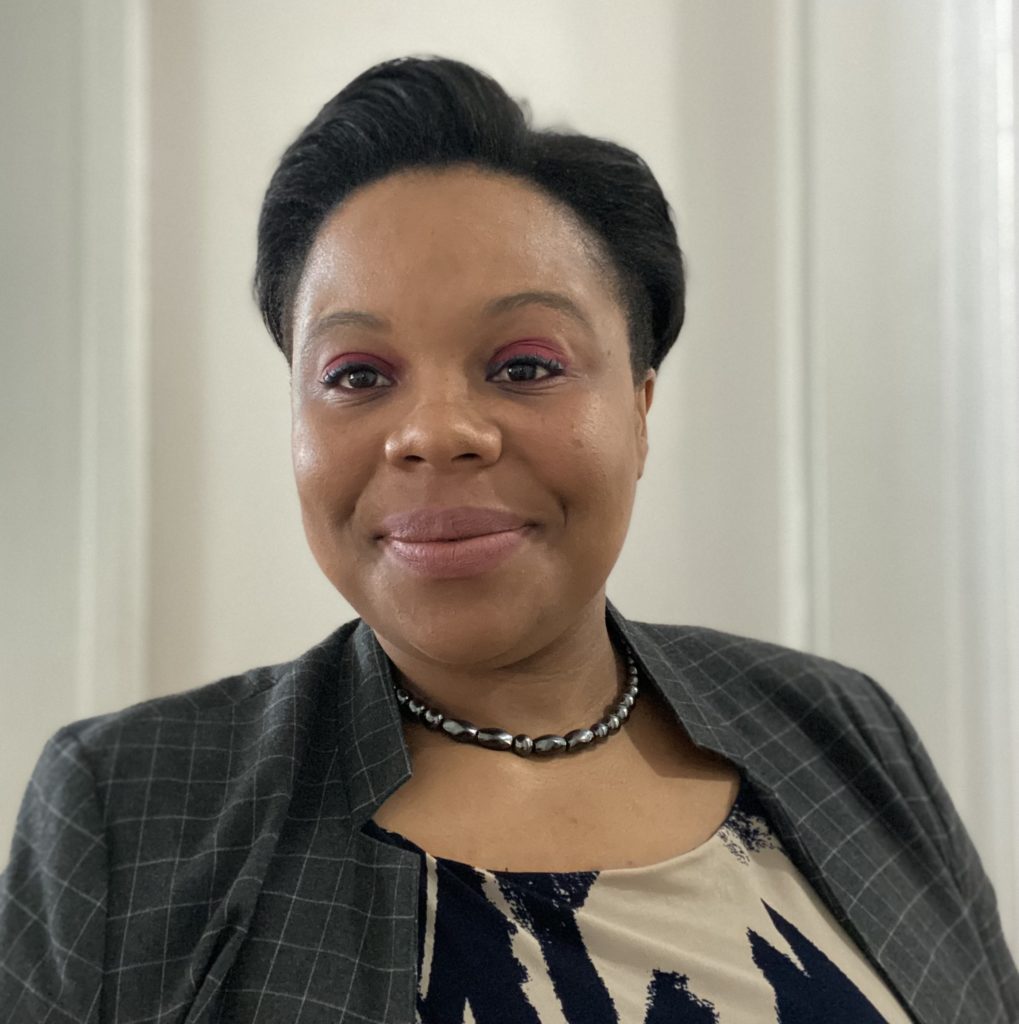
Lerato Chondoma, Associate Director, Indigenous Research Support Initiative, University of British Columbia
Lerato hails from the Batuang Clan of ba ha Moletsane from Lesotho in Southern Africa and is a visitor on the unceded, ancestral territory of the xʷməθkʷəy̓əm (Musqueam) people. Lerato champions and supports scholarship and discourses in Indigenous community-based research, intersectional equity and decoloniality that focus on the interests and priorities of Indigenous, Black and other racialized communities and researchers. Lerato also works to understand how systems, policy and procedure can support community-university collaborations and address issues of racism, justice and equity on individual and system-wide levels. She is very interested in exploring new approaches to recognize and centre alternative ways of knowing and doing and how these are measured and evaluated in our academic systems.
Panel
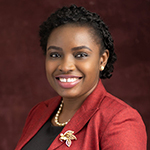
Amina Zamani, Executive Member, UBC Black Caucus
Amina Zamani (UBC Black Caucus) is a United Nations Certified Human Rights, Equity and Diversity Expert with over 18 years experience in the humanitarian, public/private sectors and most recently in administration within academia. She worked as an Equity trainer/facilitator for multi-professional peacekeeping teams; has led and served in teams that developed, and implemented Equity and Inclusion policies at various organizations, and has worked in crisis management/arbitration. She is currently serving as an Executive Member of the UBC Black Caucus.
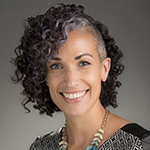
Ebony Magnus, SFU Black Caucus Rep Head, Samuel & Frances Belzberg Library, Simon Fraser University
Ebony Magnus is the Head Librarian at Simon Fraser University’s Samuel and Frances Belzberg Library in downtown Vancouver. She holds a Master’s of Library and Information Science from the University of British Columbia and a Master’s of Arts in English Literature from Carleton University. Through her work in libraries, she seeks to undermine myths of neutrality and challenge oppressive power structures while creating space for community growth and sustenance.

Stephanie Allen, SFU Alumna and community activist
Stephanie Allen is a real estate development specialist focused on building affordable, equitable communities. She holds a bachelor’s degree in business administration and a master’s in urban studies. Stephanie’s masters research focused on the settlement and displacement of Black communities and documented the work done in Vancouver to seek redress for the displacement of Hogan’s Alley. She was awarded the 2020-2021 Western Association of Graduate Schools (WAGS) and ProQuest Distinguished Master’s Thesis Award in humanities, social sciences, education, and business disciplines for her research. Most recently, she was the recipient of the 2021 BC Multiculturalism and Anti-Racism Awards, in the Breaking Barriers category, for tackling systemic racism and reducing barriers for communities that experience marginalization. Stephanie has worked in the private, non-profit, and public sectors of real estate development since 2002 and is a founding board member of Hogan’s Alley Society and she is currently the Vice President of Strategic Business Operations & Performance for BC Housing.
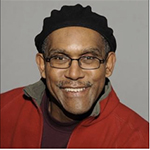
Parker Johnson, Community Activist
Parker Johnson (he/him) is an African American resident/settler of area colonially known as east Vancouver (unceded and occupied Squamish,Tsleil-Waututh, and Musqueam lands). He’s a spouse/parent/community member, educator, and organizational change specialist who is committed to building just, equitable, diverse, and inclusive organizations and communities.
Closing Remarks

June Francis, Special Advisor to the President on Anti-racism and Director of the Institute for Diaspora Research and Engagement, Simon Fraser University

Handel Kashope Wright, Senior Advisor to the President on Anti-racism and Inclusive Excellence and Director, Centre for Culture, Identity & Education, University of British Columbia
Contact
Media Inquiries:
UBC Media Relations
Tel: 604-822-6397
Email: media.relations@ubc.ca


